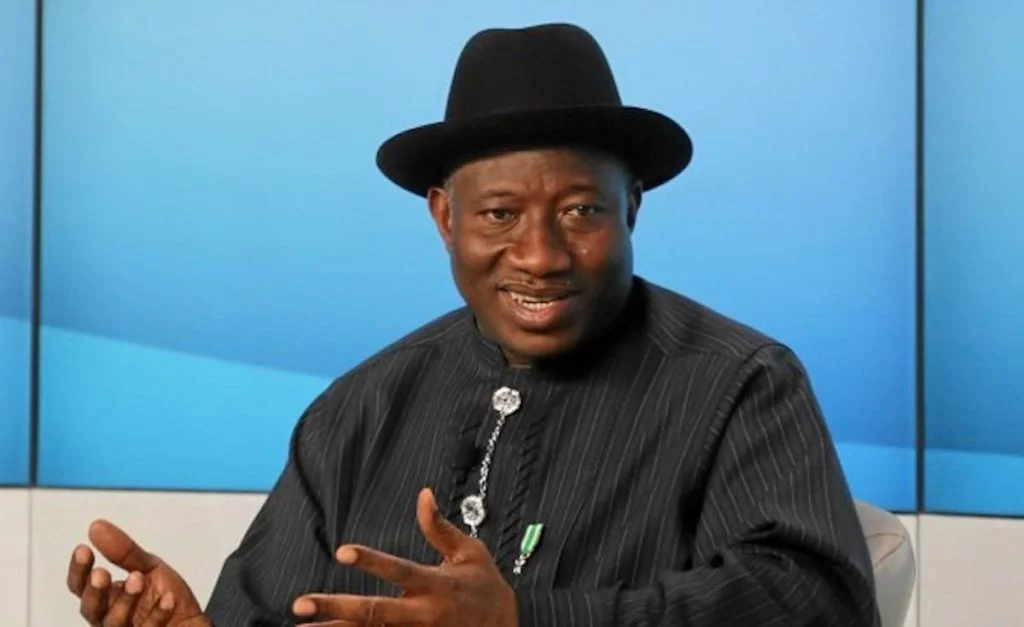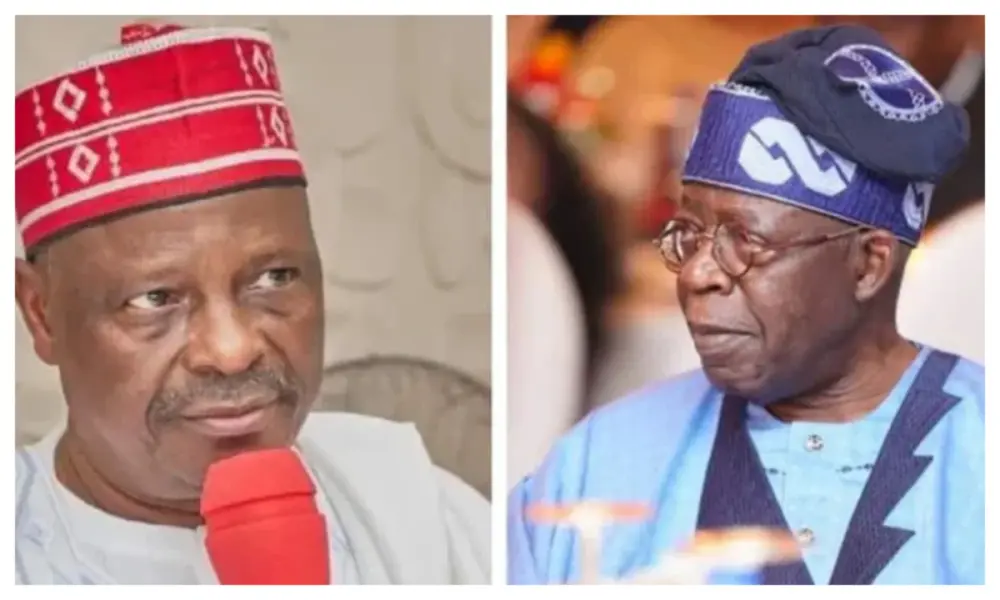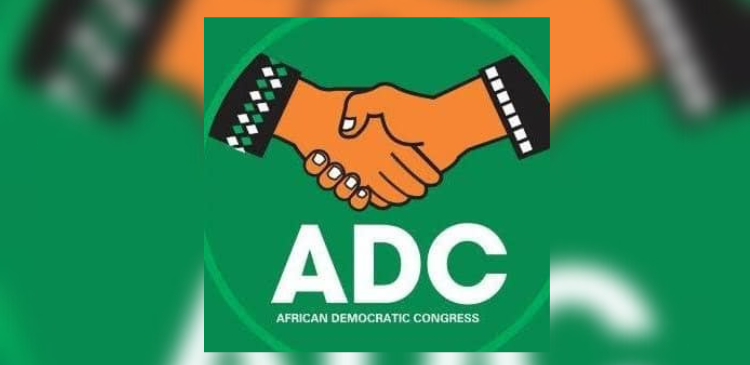Politics
2027: Jonathan Opens Up On Eligibility To Run Again

The controversy over the eligibility of former President Goodluck Jonathan to join the 2027 presidential race took a twist last week when it emerged that a court had cleared the obstacle to his being sworn in for the third time as president.
Critics had cited Section 137(3) of the 1999 Constitution (as amended) which provides that no elected person into public office in Nigeria shall be sworn-in more than twice, basing their argument on the former president’s swearing-in in 2010 after his predecessor, the late President Umaru Yar’Adua, died in office, and 2011 when he won his own election. He left office in 2025 after losing reelection and the Section 137(3) wasn’t law until 2018, three years later, triggering the argument on whether or not the law can apply to him retroactively.
Significantly, some leaders of the Peoples Democratic Party (PDP) are pushing for him to contest on the platform of the party the 2027 presidential election.
Vanguard obtained the judgment of the Federal High Court Yenagoa which heard the case and the trial judge, Hon. Justice Isa H. Dashen, while reviewing the submissions made before him on May 27, 2022, quoted copiously from the Counter-Affidavit in which Jonathan made his case, saying he could not be legally stopped from participating in presidential election in the future based on Section 137(3) of the Constitution.
Dashen agreed with the former president’s position.
Curiously, the All Progressives Congress (APC) and the Independent National Electoral Commission (INEC), which were both joined as Defendants in the suit filed by two persons who described themselves as APC members (Andy Solomon and Ibidiye Abraham), failed to make appearances despite being served with all the processes, forcing the presiding judge to remark that they agreed with all the facts of the case as pleaded by the Plaintiffs and Jonathan who was the First Defendant.
On this, he noted: “As earlier stated, both 2nd and 3rd Defendants (APC and INEC) did not file any processes in response or reaction thereto despite service of the Originating process on them.
“In the locus classicus case of OYEYIPO VS OYINLOYE (1987) I
READ ALSO:Court Ruling Clears Jonathan For 2027 Presidential Bid Amid Pressure From Parties
NWLR (Part 50) 350, the Apex Court held thus: ‘A Defendant who fails to enter appearance or file Counter-Affidavit in response to the averments in support of the Originating Summons would be presumed to have Demurred and admitted the facts deposed to in the Affidavit filed in support Originating Summons.
“See the recent case of FUTMINA & ORS VS OLUTAYO (2017)
LPELR- 43827 (SC) and CHEVRON (NIG) LTD VS IMO STATE
HOUSE OF ASSEMBLY AND ORS (2016) LPELR- 41563 (CA) where the Appellate Courts confirmed the above position”.
The Jonathan case
Dashen, in his judgment while referring to Jonathan’s Counter-Affidavit in which he made his case, said: “The 1st Defendant’s Counter-Affidavit is of Twelve (12) paragraphs and is deposed to by one Engr. Peletiri John Debetimi who described himself as an Assistant to the 1st Defendant.
“One (1) exhibit marked as Exhibit EKOI was annexed to the said Counter-Affidavit.
“Exhibit EKOI is a copy of the Official Gazette containing the 4th Alteration to the Constitution of the Federal Republic of Nigeria, 1999.
“In summary, the 1st Defendant’s response, as stated in his Counter-
Affidavit, is that he has never been ‘elected’ into the Office of the President of the Federal Republic of Nigeria on Two (2) previous occasions.
“The 1st Defendant stated that the oath of office he took on the 6th of May, 2010 was taken upon his ‘Election’ as President of the Federal Republic of Nigeria.
“The 1st Defendant further asserted that he took the said oath to complete the aborted tenure of the late President Umar Yar’ Adua.
“The 1st Defendant referred the Court to the decision of the Court of Appeal in the case of CYRIACUS NJOKU VS.GOODLUCK EBELE JONATHAN (2015) LPELR-24496 wherein the Court of Appeal held that the oath of office he took on 6th May, 2010 cannot be taken into account in the interpretation of the provisions of Section 137(1) (b) of the Constitution.
“The 1st Defendant, thereafter, stated that he has only been elected to the Office of President once and in year 2011.
READ ALSO:2027: Jonathan’s Cousin Tackles Keyamo Over Ex-president Not Qualified Comment
“With respect to the provisions of Section 137(3) of the Constitution, the 1st Defendant stated that from Exhibit EKOI (i.e. the Official Gazette of the 4th Alteration of the Constitution), ‘Commencement’ date of the said amendment to the provisions of Section 137 of the Constitution therein contained is said to be ‘7th Day of June, 2018’. “Therefore, the 1st Defendant contended that the amendment introduced by sub-section (3) of Section 137 of the Constitution came into effect and became operational from 7th June, 2018.
“On the basis of the foregoing, the Defendant contended that since he took the first oath of office as President in year 2010 and the second oath of office in year 2011 respectively, the 4th Alteration of the Constitution which took effect from th June, 2018 cannot be applied retrospectively to prevent him from exercising his right to contest for the Office of President of the Federal Republic of Nigeria, which said right accrued to him since year 2015 before the 4th Alteration to the Constitution was effected.
Three questions
“In his written address, the 1st Defendant formulated three (3) questions for the determination of this Court.
“Whilst the 1st Defendant adopted questions 2 and 3 submitted by the Plaintiffs, he re-phrased question 1 submitted by the Plaintiffs.
“Therefore, the questions submitted by the Plaintiffs and the 1st Defendant are congruent and are not substantially different.
“The questions submitted by the 1st Defendant read as follows:
1. Whether in view of the provisions of:
a. Section 137(1)(b) of the Constitution of the Federal Republic of Nigeria, 1999 (as altered); and
b. Section 137 (3) of the Constitution of the Federal Republic of Nigeria, 1999 (as altered) (as contained in the 4th Alteration (No.16) Act 2017), the 1st Defendant is qualified to contest for the office of the President of the Federal Republic of Nigeria in the 2023 General Elections.
2. If the answer to 1 above is in the affirmative, then: Whether the
2nd Defendant is entitled to field the 1st Defendant as its presidential candidate in the 2023 General Elections.
3. Whether the 3rd Defendant is entitled to disqualify the 1st Defendant from contesting and/or from 2nd Defendant’s presidential candidate in the 2023 General Elections.
“Again, at paragraphs 4.00 4.05 of his written address, the 1st Defendant raised a Preliminary Point challenging the locus standi of the Plaintiffs to institute the instant suit.
READ ALSO:APC Mocks Jonathan As ADC Woos Him For 2027 Race
“I shall deal with this preliminary point whilst considering the substantive Originating Summons.
“On the basis of the foregoing, the 1st Defendant asserted that he is eminently qualified to contest for and/or nominated for election into the Office of the President of the Federal Republic of Nigeria.
“The 1st Defendant therefore urged the Court to discountenance the Plaintiffs’ contentions and answer the questions submitted in the Originating Summons in his favour and against the Plaintiffs and refuse the reliefs sought for by the Plaintiffs”.
For the part of the Plaintiffs, the questions they wanted resolved by the court, according to the judge, are:
1. Whether, in view of the provisions of Section 137(1)(b) and (3) of the Constitution of the Federal Republic of Nigeria, 1999 (as altered) and the fact that the 1st Defendant had earlier been sworn-in as the President of the Federal Republic of Nigeria in 2010 and 2011 respectively, the 1st Defendant is qualified to contest for the office of the President of the Federal Republic of Nigeria in the 2023 General Elections to be organized by the 3rd Defendant (INEC).
2. If the answer to 1 above is in the negative, then: Whether the 2nd
Defendant (APC) is entitled to field the 1st Defendant as its presidential candidate in the 2023 General Elections.
3. Whether the 3rd Defendant (INEC) is entitled to disqualify the 1st Defendant (Jonathan) from contesting and/or from being presented as the 2nd Defendant’s (APC) presidential candidate in the 2023 General Elections.
Juxtaposition
Reading his judgment, Justice Dashen said: “Having carefully considered the arguments of the parties, I am of the view that the determination of the application or otherwise of the provisions of sub-section (3) of Section 137 of the Constitution to the 1st Defendant lies on the juxtaposition of the date when the 1st Defendant claims to have acquired his present right to be sworn-in as President and the date on which sub- section (3) of Section 137 of the Constitution took effect.
“The starting point is to acknowledge the fact that sub-section (3) of Section 137 of the Constitution was not originally part of the corpus of the Constitution. Sub-section (3) of Section 137 of the Constitution was introduced by the 4th Alteration to the said Constitution.
“Although the 1st Defendant attached the Official Gazette wherein this alteration was published as Exhibit EKO I (i.e. Exhibit) to his Counter-Affidavit, this Court is empowered to take judicial notice of the law by virtue of the provisions of Section 122(2)(a) of the Evidence Act 2011. A cursory look at Exhibit EKO1 (i.e. Exhibit) will reveal that the 4th Alteration introduced a restriction with regard to the number of times a person, sworn-in as President of the Federal Republic of Nigeria to complete the term for which another person was elected, can be sworn-in as President after completing the remainder of the said term.
“Sub- section (3) of Section 137 of the Constitution states that any person who was so sworn-in shall, after completing the term of such other person, be eligible to be only elected to the office of President for a single term.
“Further scrutiny of Exhibit EKOI (i.e. Exhibit) also reveals that the 4th Alteration was enacted by the National Assembly in 2017; however, the ‘commencement’ date for same was expressly set for ‘7th Day of June, 2018’.
“Having the benefit of reading the Official Gazette (i.e. Exhibit ÉKO1), I therefore have no difficulty in holding that provisions of subsection (3) of Section 137 of the Constitution took effect from 7th June, 2018. And I so hold”.
(VANGUARD)
Politics
PDP Crisis: INEC Rejects Turaki-led NWC

The Independent National Electoral Commission, INEC, has said it will not recognise the Kabiru Turaki-led National Working Committee, NWC, of the Peoples Democratic Party, citing existing court judgments and unresolved legal processes.
This was as contained in a letter dated December 22, 2025, signed by INEC Secretary, Dr Rose Oriaran-Anthony.
The Commission stated that it could not act on demands to acknowledge or upload on its website the list of national officers said to have been elected at the National Convention held on November 15 and 16, 2025, in Ibadan.
READ ALSO:Osun, Imo, Kano Lead As INEC Reports 2.3m New Voter Registrations
According to INEC, its position was guided by subsisting court decisions and pending litigation relating to the leadership crisis within the PDP.
The electoral body further noted that it would be improper to recognise any factional officers while the matter remains before the courts.
Politics
Govt That Fails To Protect Its Citizens Has No Business Remaining In Office – Kwankwaso

Senator Rabiu Musa Kwankwaso, leader of the Kwankwasiyya Movement and 2023 presidential candidate of the New Nigeria Peoples Party (NNPP), has accused the Federal Government under President Bola Ahmed Tinubu of lacking the political will to tackle Nigeria’s worsening insecurity.
Kwankwaso spoke on Tuesday in Kano while unveiling 2,000 operatives of the Kano State Neighbourhood Security Network.
He urged President Tinubu to “rise to the occasion and truly act as the Commander-in-Chief” in addressing banditry and other security challenges.
READ ALSO:Tinubu Embarks On Three-state Visit
According to him, Nigeria’s military “remains one of the most gallant in the world,” having served in international peacekeeping missions in Darfur, Liberia, and other conflict zones.
However, he said the armed forces are not being adequately supported to perform optimally.
“Today, many innocent Nigerians are being killed, while the perpetrators walk freely as if nothing happened. The government must apologise to Nigerians for its laxity in the fight against insecurity,” he said.
Kwankwaso, who once served as Minister of Defence, added: “When I was Defence Minister, I knew the capability of the Nigerian military. They are courageous and professional but need clear direction, support, and political will to do the needful.”
READ ALSO:Soyinka Decries Seyi Tinubu’s ‘Excessive’ Security Escort
He stressed that Nigeria’s armed forces had historically ranked among the best globally and urged the government to equip them properly to change the current security situation.
Kwankwaso also said that if elected president in 2027, he would recruit over one million additional military personnel to strengthen national security.
“Any government that fails to protect the lives and property of its citizens has failed woefully and has no business remaining in office,” he declared.
He further called on the Federal Government to integrate community-based security initiatives, like the Kano Neighbourhood Security Network, into the national security system to boost morale and improve intelligence-driven operations against criminals.
Politics
ADC Announces Temporary Closure Of Secretariat

The African Democratic Congress, ADC , says it has temporarily closed its National Secretariat as part of the end-of-year break.
A statement by its National Publicity Secretary, Bolaji Abdullahi, said full operations are scheduled to resume in the New Year.
According to the statement, the secretariat will close on December 23, 2025, and reopen on January 5, 2026.
READ ALSO:Irresponsible Of You To Blame Trump Over Rising Insecurity – ADC Blasts Tinubu’s Govt
The party, however, said essential skeletal services will remain available throughout the period, while all other official activities at the National Secretariat will be suspended to allow staff and party officials observe the Christmas and New Year holidays.
“This is to inform the public that the African Democratic Congress National Secretariat will close for the year on 23rd December 2025 and will resume full operations on 5th January 2026.
“During this period, only skeletal services will be available, while all other official activities at the Secretariat will be temporarily suspended,” the statement said.
READ ALSO:Hoodlums Set Ablaze ADC Secretariat In Ekiti, Disrupt Party Excos’ Inauguration
The party thanked its members, partners and supporters for their continued loyalty and cooperation throughout the year, noting that their support remains critical to the growth and stability of the party.
The ADC also said it is committed to its ideals and to democratic engagement as it prepares for activities in the coming year.

 News3 days ago
News3 days agoPHOTOS: New Era In Furupagha-Ebijaw As Okpururu 1 Receives Staff Of Office

 News2 days ago
News2 days agoUBTH CMD Marks 120 Days In Office, Expresses Commitment To Providing Conducive Working Environment

 News3 days ago
News3 days agoOPINION: Gumi And His Terrorists

 News3 days ago
News3 days agoFG Declares Public Holidays For Christmas, New Year Celebrations

 News2 days ago
News2 days agoFIRS Confirms NIN As Tax ID

 News2 days ago
News2 days agoOPINION: My Man Of The Season

 News3 days ago
News3 days agoOPINION: Christmas And A Motherless Child

 Metro5 days ago
Metro5 days agoWhy I Charged My Husband Money For Sex —Woman

 Metro2 days ago
Metro2 days agoFintiri Pardons Man Sentenced To Death For ‘Killing Herdsman In Self-defence’, Others

 News5 days ago
News5 days agoCourt Dissolves Petitioner’s Marriage Over Lack Of Love, Care




























